Research infrastructures (RIs), at the heart of the research and innovation ecosystem, play a key role in delivering scientific breakthroughs and driving innovation as the pillars of research that responds to societal challenges. Research infrastructures form the backbone of national and international knowledge communities, serving as a strategic tool for the development of research and innovation.
The National Research, Development and Innovation Office (NRDI Office) is a member of several international research infrastructures and an active participant in several professional collaborations and policy-making organisations, thus helping to integrate Hungarian RDI professionals into the international research and innovation community. In the context of the 2021 update of the European Strategy Forum for Research Infrastructures (ESFRI) Roadmap, Hungary has joined two more existing research infrastructures and, with the support of the NRDI Office, Hungarian research communities can participate in the preparation of three new European Research Infrastructure initiatives.
The NRDI Office will ensure, through chapter-managed appropriations, the affiliation to international research infrastructures and organisations and the payment of membership fees for participation. In addition to central budget contributions, however, it is an aim that international membership fees are paid to the largest possible extent from the own resources of the research centres and higher education institutions involved in the given international research infrastructure. Another aim is to increase the share of in-kind contributions in Hungary’s contributions to international membership fees.
The fees for membership of international professional organisations for RDI purposes and the cost of access to research infrastructures amount to approximately HUF 11 billion per year in the budget of the NRDI Office, of which ELI ERIC, as an international research infrastructure of key importance for Hungary, receives HUF 6.1 billion.
In order to ensure the proper and effective utilisation of funds, the NRDI Office considers it a priority to continuously monitor and review the benefits of its memberships by looking at achievement and expenditure in the specific R&D fields, and to ensure that the resulting public benefits are not only enjoyed by the beneficiaries but also by the wider research community, society and decision-makers responsible for science funding.
Memberships in international RDI organisations financed by the NRDI Office cover the following main areas:
- The most advanced international research infrastructures are highly expensive equipment, facilities or databanks that go beyond the economic capabilities of a single country, and therefore are established and operated in international cooperation. As access to world-class research infrastructures is essential for Hungarian researchers to take part in cutting-edge international research, the NRDI Office has joined several international infrastructures. Apart from granting access to new research findings, Hungary’s membership in international organisations also promote closer cooperation between domestic research groups, boost domestic innovation and knowledge sharing with the business sector, and help tackling wide-scale social problems. Membership in large international research infrastructures enable Hungarian researchers to participate in world-class experiments in physical and engineering sciences, biological research, and social innovation.
- Professional cooperation programmes provide coordinated research and further training opportunities for Hungarian researchers mostly in specific fields (e.g. VKI), or development frameworks and funding for the implementation of marketable innovative ideas (COST, EUREKA, AAL). The industrial and technological research cooperation programmes of EUREKA and EUROSTARS provide an excellent opportunity to involve businesses in R&D projects in any field of science. In return for the annual membership fee, which is based on professional partnerships, the direct-access development funds received by successful Hungarian applicants often exceed the amount of the membership fee.
- Organisations belonging to the third group provide help in making sound RDI-policies and strategic planning by providing data, comprehensive statistics, analyses on global problems affecting Hungary and possible answers, and by sharing best international practices. Good examples include the OECD data base and the analytical-synthesizing work of technical committees, or the TAFTIE membership which enables the representation of national interests in matters already in progress or under preparation through the exchange of experience by European innovation agencies. The background knowledge acquired here has many practical and informal benefits for RDI experts and the country.
OVERVIEW OF INTERNATIONAL MEMBERSHIP FEES FINANCED BY THE NATIONAL RESEARCH, DEVELOPMENT AND INNOVATION OFFICE, AND THE PUBLIC BENEFIT OF MEMBERSHIPS
1. INTERNATIONAL RESEARCH INFRASTRUCTURES
|
||
| Organisation, programme | Objective, characteristic feature | Benefits of the membership |
| ENVIRONMENT | ||
 ICOS ERIC Integrated Carbon Observation System Member since: 2022 Membership fee for 2022: EUR 34,636.68 |
ICOS ERIC is the main European research organisation for climate and atmosphere research. Learn more |
Access to the entire European measurement and research infrastructure. Learn more |
| HEALTH AND FOOD SCIENCES | ||
 BBMRI ERIC Biobanking and Biomolecular Research Infrastructure Member since: 2021 Membership fee for 2022: EUR 40,901 |
BBMRI-ERIC aims to promote the development of new, effective therapeutic treatments by aligning the needs and opportunities of researchers, the industry and patients in need of treatment through related biomedical research. Learn more |
It unifies the activities of the individual biobanks, creating a huge database for research. Learn more |
 ELIXIR European Life-sciences Infrastructure for Biological Information Member since: 2016 Membership fee for 2022: EUR 48,297 |
Its main objective is to create, develop and ensure access to existing (and future) sources of biological data. Read more |
Direct economic benefits in the research and development of pharmaceuticals, medicine, agriculture, biochemistry, biophysics and bioinformatics research. Learn more |
 EMBL European Molecular Biology Laboratory Member since: 2017 Membership fee for 2022: EUR 815,019 |
European intergovernmental research organisation dealing with life sciences (genetics and molecular biology), which plays a leading role in the integration of European life science research. Read more |
It provides opportunities for Hungarian researchers to conduct state-of-the-art research in life sciences and participate in training programmes. Learn more |
|
EuBI-ERIC The European Research Infrastructure for Imaging Technologies in Biological and Biomedical Sciences – Euro-BioImaging Member since: 2016 Membership fee for 2022: 50,463 EUR |
Provides open physical access to a wide range of world-class biological and biomedical imaging technologies for researchers in life sciences. Read more |
Gives access for the domestic research community to the laboratories equipped with the most advanced technologies; while research help to better understand diseases from diagnosis to treatment, thus improving the overall health of the population. Learn more |
 ICGEB International Centre for Genetic Engineering and Biotechnology Member since: 1987 Membership fee for 2022: USD 40,300 |
The autonomous intergovernmental organisation aims to enable less industrialised countries to take advantage of the latest advances in biotechnology. Read more |
Hungarian researchers can apply for grants annually for high-standard biotechnological research projects (Collaborative Research Programme, CRP) as well as for PhD and Post-doc fellowships. Learn more |
| PHYSICAL SCIENCES AND ENGINEERING | ||
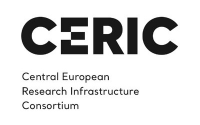 CERIC-ERIC Central European Research Infrastructure Consortium Member since: 2016 Membership fee for 2022: 64,155 EUR |
The Consortium aims to provide external researchers with access to analytical, structural and imaging studies using synchrotron, neutron beam and other microscopic probes, and to the necessary material modification techniques, in the fields of nanotechnology, environment, materials science, life sciences and cultural heritage. Read more |
The domestic scientific value of CERIC-ERIC lies primarily in its proactive involvement/participation in the Central European large-scale analytical research bloodstream in a highly organised multidisciplinary service framework. Learn more |
 CERN European Organization for Nuclear Research Member since: 1992 Membership fee for 2022: CHF 8,580,300 |
The world's largest particle physics laboratory, which examines the building blocks and operation of the universe by using particle accelerators and detectors. The Large Hadron Collider (LHC) is now the world’s largest and most powerful particle accelerator. Read more |
Hungarian researchers gain access to a new, internationally unique large facility, which hosts half of the world’s particle physicists. Opportunity to make new results and discoveries in basic research in physics, which can lay the foundations of subsequent developments. Learn more |
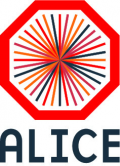 A Large Ion Collider Experiment Member since: 1989 and 2000 Membership fee for 2022: CHF 55,628 |
The ALICE heavy-ion detector is an experiment on the LHC ring focusing on the physics of strongly interacting matter at extreme energy densities where a new state of matter, namely the quark–gluon plasma (QGP) appears. Read more |
The contribution of Hungarian scientists to research results potentially open up new prospects for international cooperation and research. Learn more |
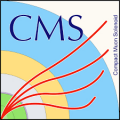 Compact Muon Solenoid Member since: 1990 and 2000 Membership fee for 2022: CHF 92,570 (with CMS Detector Upgrade II) |
The CMS is a general-purpose detector at LHC having a broad physics programme ranging from studying the Standard Model (including the Higgs boson) to searching for extra dimensions and particles assumed to make up dark matter. Read more |
The contribution of Hungarian scientists to research results potentially open up new prospects for international cooperation and research. Learn more |
 ELI ERIC Extreme Light Infrastructure Member since: 2010 Membership fee for 2022: 16,302,000 EUR |
The ELI ALPS and ELI Beamlines institutes are the first facilities in the world to enable the study of the interaction of light and matter at higher intensities with increasing time resolution, even in the ultra-relativistic range. Read more |
Participation as a host country in a pan-European research infrastructure whose research results can have a significant impact in the fields of medicine, the environment and socially relevant applications. Read more |
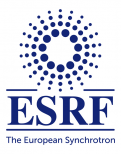 ESRF European Synchrotron Radiation Facility Member since: 2017 Membership fee for 2022: 105,546.88 EUR |
Special X-ray source which is fundamentally important for determining the atomic structure, electronic structure and magnetic properties of materials. It also offers measurement services in almost all fields of science. Read more |
ESRF stands out from the numerous synchrotron sources of the world in terms of test beam parameters, the number of measurement techniques, available equipment and the number of measurement channels, enabling Hungarian researchers to participate in cutting-edge research, and promoting multidisciplinary research and cooperation between researchers from various fields of science. Learn more |
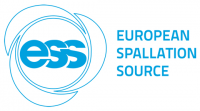 ESS European Spallation Source Member since: 2014 Membership fee for 2022: EUR 3,000,000 |
One of the largest ongoing investment in research infrastructure in the EU, which aspires to global leadership in neutron research. It will receive a major role in biotechnology and energy research, as well as in the fields of materials science and ICT Read more |
The future access by Hungarian researchers to internationally competitive and costly large research equipment provides great opportunities for the domestic R&D sector, while 70% of the membership fee is reinvested in Hungary in the form of orders to domestic suppliers. Learn more |
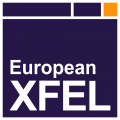 European XFEL European X-Ray Free-Electron Laser Facility Member since: 2009 Membership fee for 2022: EUR 1,342,345 |
Following full commissioning, the international research infrastructure is going to be Europe’s first and the world’s largest hard X-ray free-electron laser. Read more |
Access to internationally competitive, costly large research facilities enables Hungarian researchers to produce new results in areas such as molecular biology, genomics, medical diagnostics, therapeutic applications, nanotechnology and materials science. Learn more |
 ITER International Thermonuclear Experimental Reactor Member since: 2007 Membership fee for 2022: EUR 48,600 |
Its EU/EURATOM membership enables Hungary to take part in the large-scale research infrastructure cooperation aimed at fusion energy experiments producing marketable results. Read more |
Access to the internationally competitive, costly large research facility enables Hungarian researchers to produce new results in nuclear physics theory and application, supported by research grants and opportunities for industrial supply. Learn more |
| SOCIAL AND CULTURAL INNOVATION | ||
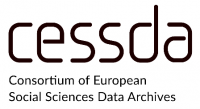 CESSDA ERIC Consortium of European Social Science Data Archives Member since: 2017 Membership fee for 2022: EUR 15,000 |
Virtual research infrastructure focusing on collecting, archiving, distributing and increasing the searchability of social sciences databases. Read more |
In addition to providing access to, connecting and standardising sociological databases, and improving data quality, Hungarian researchers and data archiving staff can also take part in professional training courses. Learn more |
 CLARIN ERIC Common Language Resources and Technology Infrastructure Member since: 2016 Membership fee for 2022: EUR 14,384 |
The infrastructure provides advanced digital language resources and tools primarily for scholars and social scientists. Read more |
The membership provides Hungarian researchers access to the most advanced language technology databases, while the integration of digital language databases gives access to remote archives for linguists, scholars and social scientists. Learn more |
 ESS ERIC European Social Survey Member since: 2016 Membership fee for 2022: EUR 22,500 |
The organisation biannually collects international comparative data about the demographic and social conditions of European societies, political and public preferences of citizens, and changes in social attitudes and action-guiding values. Read more |
The methodology used is also a model for national surveys, and there is no need to conduct new primary research in the topics covered by the ESS Learn more |
|
E-RIHS European Research Infrastructure for Heritage Science Member since: 2017 Membership fee for 2023: 0 |
The E-RIHS supports research activities aimed at the preservation, processing, documentation and management of cultural heritage. Read more |
It provides state-of-the-art equipment and services for various research communities to better understand cultural heritage at global level.. Leard more |
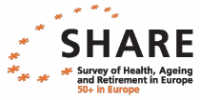 SHARE ERIC Survey of Health, Ageing and Retirement in Europe Member since: 2017 Membership fee for 2022: EUR 130,000 |
The multi-country, multi-disciplinary research network conducts surveys on the health and social implications of aging, as well as the potential public policy responses to these issues in a European comparison. Read more |
In addition to the wealth of information covered, the project’s scientific strength lies in its panel structure, which captures aging as a process and its far-reaching consequences. It also provides a unique opportunity for Hungarian social and health researchers to get involved in international research. Learn more |
2. PROFESSIONAL COOPERATION PROGRAMMES
|
||
| Organisation, programme | Objective, characteristic feature |
Benefits of the membership |
 EUREKA European market oriented R&D cooperation Member since: 1992 Membership fee for 2020: EUR 30,834 |
Contributes to Europe’s global competitiveness by coordinating industrial and technological research implemented by collaborating businesses, for-profit institutions, SMEs and research centres. Projects are funded in the R&D stage preceding market entry, and are open to all technological areas. The EUROSTAT programme operating in the framework of the cooperation is specifically designed to support R&D performing SMEs. Read more |
The R&D cooperation provides an opportunity for SMEs without thematic restrictions to launch innovative projects implemented in international consortia, and also for joining consortia led by world-class research groups and major European companies. Learn more |
 AAL Active and Assisted Living Programme Member since: 2008 Membership fee for 2020: EUR 10,000 |
The initiative aims to improve the living conditions of elderly people through developing marketable ICT tools and services in international consortia. Read more |
The new products and services resulting from the programme are potentially advantageous for all aging societies, including Hungary) Learn more |
 VKI The von Karman Institute for Fluid Dynamics Member since: 2001 Membership fee for 2020: EUR 23,948 |
International non-profit educational and scientific organisation that offers postgraduate training in the field of fluid dynamics, and coordinates extensive research in gas and liquid flow research. Read more |
Every year, several researchers win research and training grants in the fields of aeronautics, air transport, environment and applied fluid dynamics. Learn more |
 COST European Cooperation in Science and Technology Member since: 1991 Membership fee for 2020: 0 EUR |
Aims to align nationally funded technical and scientific basic research at a European level in the framework of researchers’ thematic grassroots actions, while observing the criteria of scientific excellence. Read more |
Provides a good opportunity for young researchers to get involved in the international scientific life and gain access to the latest research results. Learn more |
3. ORGANISATIONS PROVIDING HELP IN MAKING SOUND RDI-POLICIES AND STRATEGIC PLANNING
|
||
| Organisation, programme | Objective, characteristic feature |
Benefits of the membership |
 OECD Member since: 1996 Membership fee for 2020: EUR 1,806 |
OECD aims to help member states make the best possible economic and social policies It pursues analytical and research activities in the field of economic policy and social sciences at its fora and working organisations. Read more |
Ensures access to information databases (statistics and analysis) indispensable in the design of national policies and strategies, and enables participation in specialized committees (analysis of trends, best practices and plans related to science, technology and innovation policies). Learn more |
|
GSF
Global Science Forum |
GSF focuses on international scientific and technological cooperation. The consultative forum for senior science policy officials draws up draft proposals for action in priority science policy issues and contributes to the identification of opportunities for significant scientific cooperation. |
|
|
NESTI
Working Party of National Experts on Science and Technology Indicators |
NESTI is responsible for monitoring, supervising and coordinating science, technology and innovation statistics, which will help elaborate the indicators necessary to comply with requirements and priorities set by the science and technology policy committee. |
|
|
TIP
Working Party on Innovation and Technology Policy |
TIP provides evidence-based advice to help countries develop policies that increase productivity and promote sustainable and inclusive, knowledge-based economic growth; strengthen public research institutions; and encourage the creation of knowledge-intensive technology companies. | |
 TAFTIE The European Network of Innovation Agencies Member since: 2009 Membership fee for 2020: EUR 10,000 |
The network of European institutions managing national RDI programmes provides an opportunity to exchange experience, establish good practices and further develop innovation services. Read more |
Its membership makes enables Hungary to join European-level RDI processes and ongoing strategic work, represent national interests, get information on current issues and trends, and enhance domestic preparations. Learn more |
 euroCRIS The International Organisation for Research Information Member since: 2012 Membership fee for 2020: EUR 300 |
The most important product of the non-profit organisation established to support the development of quality RDI information systems is the Common European Research Information Format (CERIF), created with the support of the European Union, now considered as a quasi-standard. Its use is officially recommended for EU Member States to facilitate the development and cooperation of information technology systems in the field of RDI. Read more |
The NRDI Office is a member of the euroCRIS which aims to create, maintain and distribute a standardised research register database model in Europe. Learn more |






